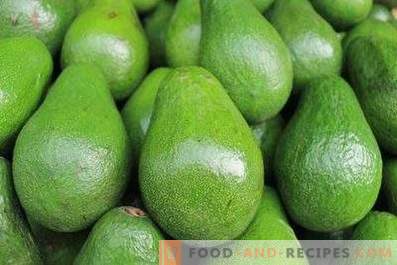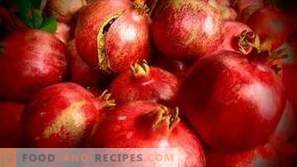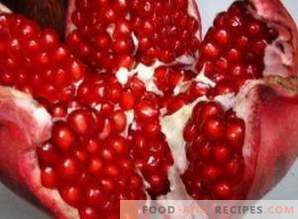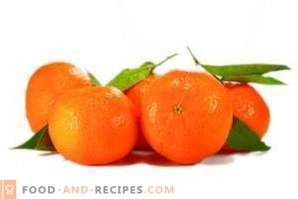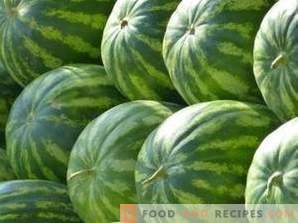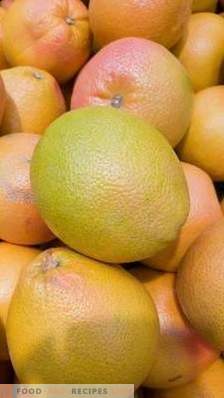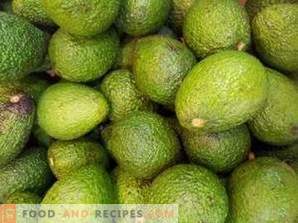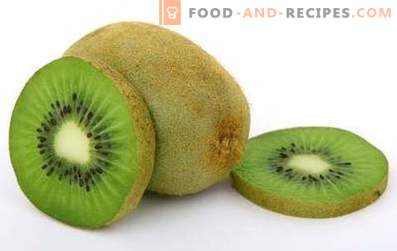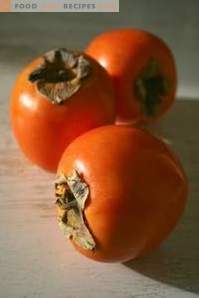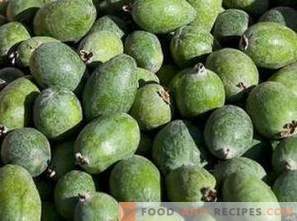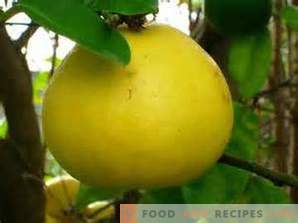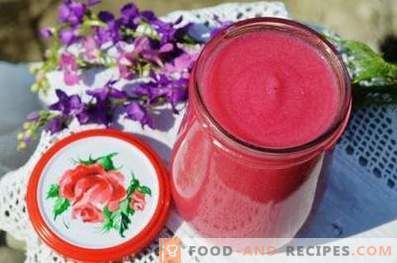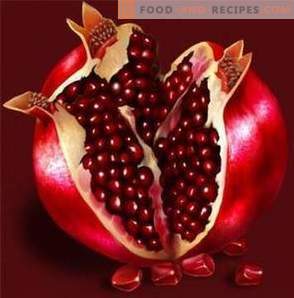
Everyone knows that pomegranates are very healthy, so they are recommended to be included in the diet not only for people suffering from diseases of the gastrointestinal tract and cardiovascular system, but also for pregnant women, as well as children who need to strengthen the immune system. However, the most useful in this regard are ripe fruits, which possess not only excellent taste, but contain a huge amount of vitamins. True, in order to make the right choice and to distinguish a ripe pomegranate from immature or overripe, you need not only to have good intuition, but also certain knowledge.
How to pick a ripe pomegranate
A peculiar litmus test, which helps to avoid mistakes when buying a pomegranate, is their skin. If it has a rich red or burgundy hue, then in front of you - a well-ripe and juicy fruit, from which the body will receive undoubted benefit. Pink or pale brown skin indicates that the garnet is immature. It is these very fruits that can often be found in supermarkets that purchase undersized vegetables and fruits in order to increase their shelf life. However, even if the pomegranate remains in the refrigerator for several weeks, its skin is unlikely to acquire a more intense color, although the taste of the kernels of the fruit will be quite pleasant and quite juicy. But the benefits of such a purchase will be very doubtful. The same can be said about overripe grenades, which are also not difficult to determine. The fact is that their skin has characteristic cracks, and it feels dry and rough to the touch. There are a lot of vitamins and useful substances in such fruits, however, the grains inside are often bursting due to overflow with juice. As a result, rotting pockets can form inside the pomegranate, and its consumption is fraught with serious health problems. The weight and size of the pomegranate should also be taken into account if you want to get a ripe and tasty fruit. Choose the largest of them and take it in one hand, and on the other place a smaller garnet, the skin of which visually falls under the definition of ripeness. A really ripe pomegranate is quite heavy, since its grains are filled with juice. If the selected fruit turns out to be lighter than its smaller competitor, then it is best to abandon its purchase.
Well, if this argument did not convince you, then you can try to determine the degree of maturity of the garnet by ear. To do this, you will also have to select several fruits and compare what sounds they make with a slight click on the skin of the nail. In a juicy and ripe pomegranate, the sound will be echoing and “metallic”, as if you would hit your finger on a miniature saucepan or aluminum basin. Immature grenades "sound" dull and quiet, and overripe can make the ringing sounds of cracked wood. In addition, if the fetus is overripe, then after a click on its skin, characteristic dents and cracks often remain.
You can complete your research with one more simple technique, for which you need to slightly squeeze a grenade in your hand, and then listen to your own feelings. If the fruit is slightly springy in the palm, then it is really ripe and suitable for human consumption. Too soft fruits, devoid of such elasticity, indicate that the grenade is overripe. Well, if you hold in your hands a kind of stone, then you can be sure that there is an unripe grenade in front of you, which you should not buy. In addition, the stem should be examined, which should be firm and slightly dried. The soft stem indicates the immaturity of the pomegranate, and the presence of mold indicates that the fruit has begun to rot from the inside.
